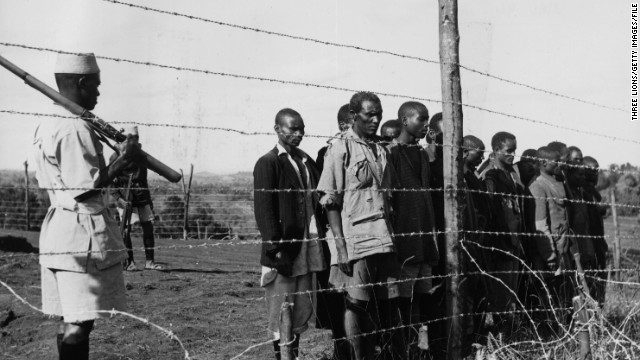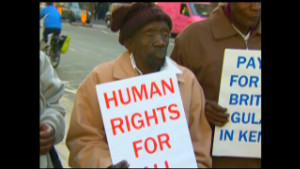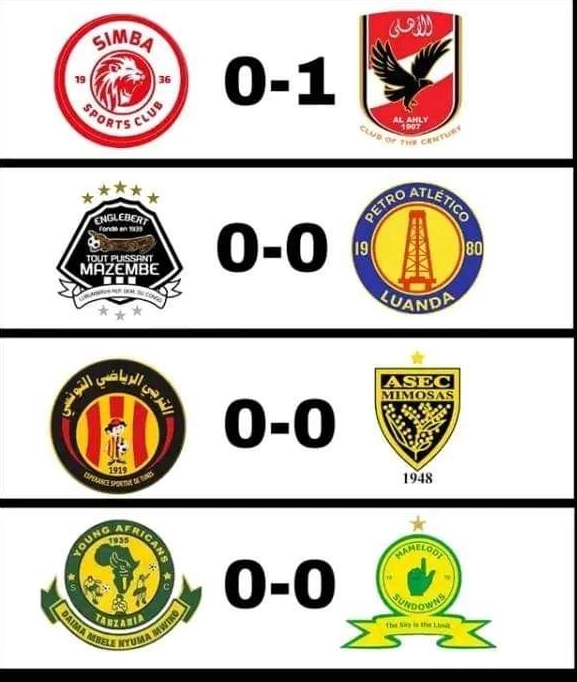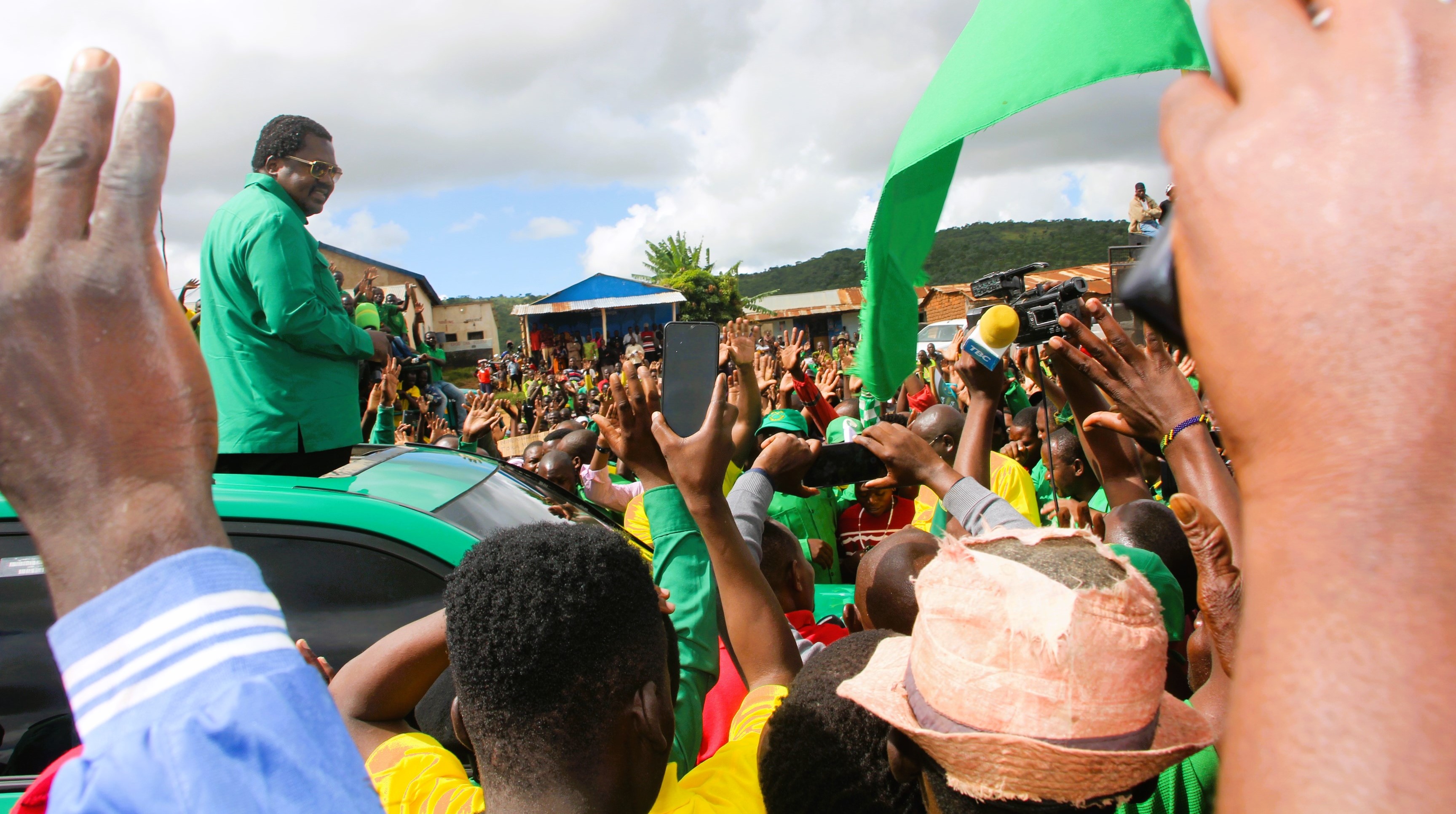UK to compensate more than 5,000 Kenyan colonial-era freedom fighters

Men suspected of being members of the Mau Mau terrorist movement in a barbed wire compound in Kenya in 1955
By Faith Karimi, CNN
(CNN) -- Decades after they endured torture,
thousands of Kenyan freedom fighters will get compensation from the UK
government, potentially opening the floodgates for colonial-era claims
from other former British colonies.
The British government
apologized for the human rights violations and announced about £19.9
million ($30 million) in settlement Thursday after years of litigation
between the two sides. Foreign Secretary William
Hague said the government "sincerely regrets" the torture of Mau Mau
fighters as the government settled a long-running lawsuit from elderly
victims.
"This is part of a process of reconciliation," Hague said. Survivors who suffered
castration, rape, beatings and detention in prison camps and other
torture have sought compensation for the colonial-era injustices. Plaintiffs provided
evidence of torture, and the amount of payout will be based on the
scale, according to Donald Rabala, an attorney representing some of the
veterans.

Kenyan torture victims demand apology
The abuse occurred
between 1952 and 1961, when fighters from the Mau Mau movement battled
British forces for land and freedom. Colonial forces killed thousands of
fighters and detained others, including Kenyans who were not part of
the rebel group. Kenya went on to gain independence from Britain in 1963.
Secret files
For three years, the Mau
Mau veterans' lawsuits faced resistance from Britain, which said the
statue of limitations had expired. It asked the judge to throw out the
case on the grounds that it transferred all liability to Kenya when the
country gained independence.
But new details emerged
after a huge cache of secret files was declassified relating to British
administration in 37 colonies. Britain kept an immaculate, handwritten
record that included some of the human rights violations.
In October, the London high court ruled that three Kenyans tortured during the colonial rebellion can sue the United Kingdom for compensation.
The three, who filed a lawsuit that prompted thousands others to join, are among the group that will be compensated.
The three plaintiffs
said they endured torture at the hands of British forces, including
castration, brutal beatings and detention. After the ruling last
year, thousands of miles away in the Kenyan capital of Nairobi, jubilant
colonial-era fighters, balancing on walking sticks, gingerly danced.
Others prayed and wept.
"It's a great day. I am
as happy as the day I was released" from the detention camp, said
Wambugu Wa Nyingi, one of the three. "We believe that they (the UK) will
do the right thing, now that they have accepted that it's the truth."
Who are the Mau Mau?
The Mau Mau nationalist
movement comprised the Kikuyu, the largest tribe in Kenya. Its members
were against British domination and fought colonial forces. During the uprising, as
many as 150,000 Kenyans were incarcerated in what was then British East
Africa, accused of joining resistance movements started by marginalized
tribes. Among them were many ordinary citizens, including U.S. President
Barack Obama's grandfather.
Obama referred to his
grandfather's incarceration in his memoir "Dreams from My Father,"
writing that Hussein Onyango Obama, who fought with the British Army
during World War II, was held for six months, but found innocent.











Comments